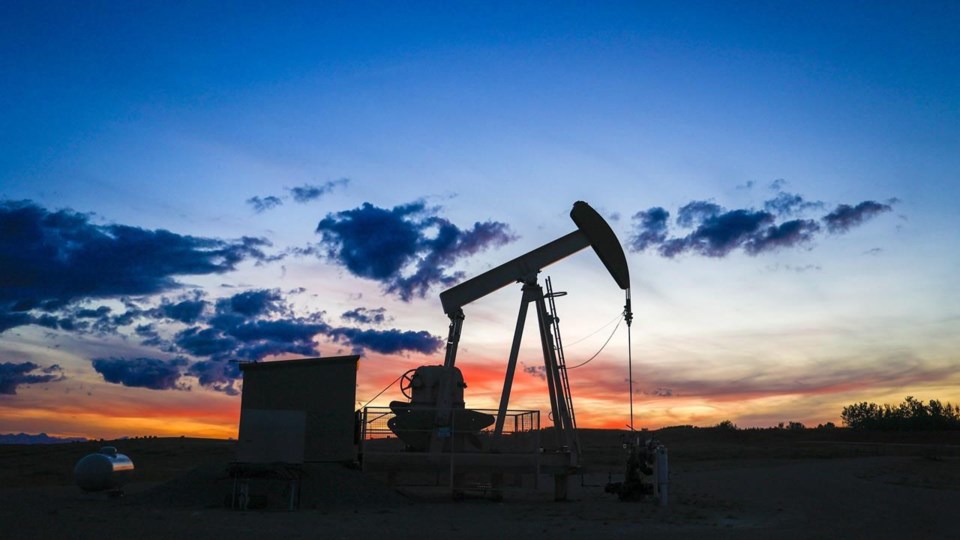EDMONTON — Critics are calling for a public inquiry into the actions of the Alberta Energy Regulator, after documents surfaced suggesting the agency downplayed the industry's environmental liabilities and withheld information on those costs.
"The (regulator) has failed to do its job," Opposition New Democrat energy critic Nagwan Al-Guneid said in a release Friday.Â
The regulator announced earlier this week that Alberta faces a $33-billion liability from abandoned and inactive wells.
The Canadian Press reported on internal documents suggesting the real figure is closer to $88 billion. Those documents also included a recommendation that the higher estimate be kept internal to avoid alarming investors or the public.Â
"The documents … demonstrate that Alberta’s Energy Regulator is still operating on the basis of questionable systemic estimates of the cleanup liabilities being imposed on future generations of Albertans," Al-Guneid said. "While the methods of calculating this multi-generational liability may be complex, Albertans deserve greater levels of transparency from the regulator."
Martin Olszynski, a law professor at the University of Calgary, said withholding the higher estimate is part of a pattern at the agency. He compared the internal liability estimate to the nine-month gap in 2022 between when the regulator knew about oilsands tailings seeping into groundwater and when it informed downstream First Nations communities in northern Alberta.
"This is all a manifestation of the same disease — regulatory capture of the regulator by the industry," he said.Â
"It's crystal clear that there was an analysis done, deemed to be more accurate than any other analysis. Yet they explicitly and clearly decided not to share that information with Albertans."
The documents also suggest the regulator didn't have a good handle on pipeline reclamation or the state of 59,000 pieces of energy infrastructure on the provincial landscape. That's a serious failing, said Olszynski, a former federal regulatory lawyer.
"I've never seen this level of wilful ignorance," he said. "There should be some accountability."
Mark Dorin of the Polluter Pay Federation, a landowners group that has argued for years that liabilities are underestimated, agreed some kind of probe is required.Â
"The (regulator) needs to be reformed," he said.
He said it's time to stop talking about the size of the problem and to start doing something about it. He added industry should pay much more into the Orphan Well Fund, which cleans up wells for which no owner can be found.
Last year's industry-wide levy was $135 million. Dorin said it should be more than $1 billion.Â
"Cleanup is at the operator's expense by law," he said. "Until the last oil company falls, they're responsible for those cleanups.
"If the (regulator) can't do the job, cabinet should appoint another body."
A spokesman for the regulator referred questions on the issue to the provincial government.
Alberta Energy Minister Brian Jean said the issues raised are long-standing and promised an announcement on it later this year.
"Our government intends to make progress on dealing with liability management and increasing reclamation of legacy oil and gas sites," he said in an email. "We believe that we can enable future oil and gas development and all the benefits they bring while also making sure that oil and gas sites are properly cleaned up."Â
The governing United Conservative Party has begun a review of the regulator
But no details on the review, led by longtime oilpatch executive and conservative activist David Yager, have been released, including information on its terms of reference and consultation plans.Â
Yager filed an interim report of his findings in November, and the government has refused to release it. His final report is due the end of February.Â
Al-Guneid said an effective regulator is critical for both industry and the Alberta public.Â
"We need clarity around liabilities for all energy industries to advance our reputation of being a responsible jurisdiction and ensure we’re not shaking investors' confidence. We need clarity around the actual size of liabilities quickly to identify the problem and develop an appropriate framework.
"Without a competent trusted regulator, the future of all of these critical resources are in jeopardy.”
 This report by The Canadian Press was first published Jan. 19, 2024.Â
Bob Weber, The Canadian Press




